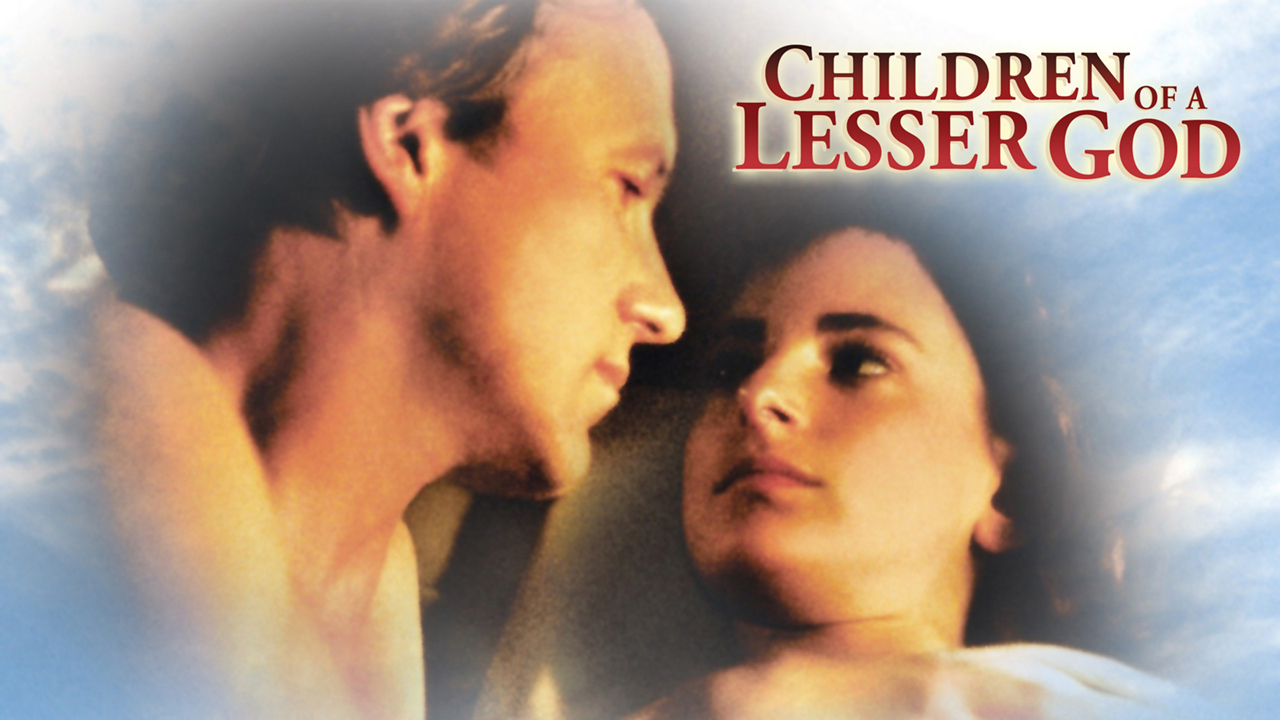
Welcome to the fascinating world of the movie “Children of a Lesser God”! In this article, we will delve into 48 intriguing facts about this iconic film that captured the hearts of audiences around the globe. “Children of a Lesser God” is a powerful and thought-provoking drama that explores themes of communication, love, and acceptance. Directed by Randa Haines and released in 1986, the film stars Marlee Matlin and William Hurt in captivating performances that earned them both Academy Award nominations. From the incredible talent of the cast to the behind-the-scenes production details, get ready to uncover little-known facts that will deepen your appreciation for this cinematic masterpiece. So, let’s jump right in and explore the fascinating world of “Children of a Lesser God!
Key Takeaways:
- “Children of a Lesser God” broke barriers by casting a deaf actress and won an Academy Award, sparking important conversations about deaf culture and representation in Hollywood.
- This timeless film explores the power of communication, love, and overcoming societal barriers, leaving a lasting impact on audiences worldwide.
Academy Award Winner
Children of a Lesser God won the Academy Award for Best Actress, cementing Marlee Matlin’s place in history as the first deaf performer to win an Oscar.
Based on a Play
The film is based on the Tony Award-winning play of the same name by Mark Medoff. The play debuted on Broadway in 1980 and received critical acclaim.
Marlee Matlin’s Breakthrough Role
Children of a Lesser God marked Marlee Matlin’s film debut, catapulting her into the spotlight and showcasing her exceptional acting abilities.
Authentic Representation
The film hired a culturally deaf actress, Marlee Matlin, to play the role of Sarah Norman, a deaf woman. This decision was groundbreaking and led to a more authentic portrayal on screen.
Original Ending
The original ending of the film was changed due to concerns from test audiences. The new ending showcased a more hopeful and optimistic outcome for the main characters.
Filming Locations
The movie was primarily filmed in various locations throughout Grand Rapids, Michigan, including Calvin College and the Deaf and Hard of Hearing Services Center.
Box Office Success
Children of a Lesser God was a box office success, grossing over $31 million worldwide against a budget of just $10 million.
Sign Language Consultant
To ensure accuracy in the portrayal of sign language, the film hired renowned deaf actor Anthony Natale as the sign language consultant.
Transformative Performance
William Hurt’s portrayal of James Leeds, a speech therapist, was widely praised and earned him an Academy Award nomination for Best Actor.
Exploring Deaf Culture
Children of a Lesser God delves deep into the world of deaf culture, shedding light on the unique experiences, challenges, and triumphs of deaf individuals.
Symbolic Title
The title “Children of a Lesser God” refers to how society often views deaf individuals as lesser or inferior, ignoring their unique strengths and abilities.
The Power of Communication
The movie highlights the power of communication and the importance of finding common ground, regardless of any barriers or differences.
Poignant Soundtrack
The film features a mesmerizing soundtrack composed by Michael Convertino, which perfectly complements the emotional depth of the story.
Impact on Deaf Community
Children of a Lesser God had a significant impact on the deaf community, sparking discussions around representation and providing a platform for deaf actors and filmmakers.
Directorial Debut
Children of a Lesser God marked the directorial debut of Randa Haines, who skillfully brought the play to life on the silver screen.
Inspirational Love Story
The film beautifully portrays the complex and inspiring love story between Sarah Norman and James Leeds, overcoming societal barriers and personal obstacles.
Cultural Sensitivity
The filmmakers worked closely with the deaf community to ensure cultural sensitivity and accurate representation throughout the movie.
Impactful Performances
In addition to Marlee Matlin and William Hurt, the supporting cast, including Piper Laurie and Philip Bosco, delivered powerful performances that elevated the film.
International Recognition
The film received critical acclaim beyond American borders and won the Golden Globe for Best Foreign Language Film at the 1987 Golden Globe Awards.
Breaking Stereotypes
Children of a Lesser God challenged stereotypes surrounding deafness and showcased the immense talent and capabilities of deaf actors.
Timeless Themes
The themes explored in the movie, such as the pursuit of independence, overcoming adversity, and the complexity of human relationships, remain relevant and impactful to this day.
Memorable Quotes
The film is filled with memorable quotes that resonate long after the credits roll, capturing the essence of the story and its poignant messages.
Advocacy for Accessibility
Children of a Lesser God played a crucial role in advocating for accessibility in the film industry, inspiring more inclusive practices and opportunities for deaf actors.
Garnered Award Nominations
In addition to the Academy Awards, the film received multiple nominations at other prestigious award ceremonies, including the BAFTAs and the Golden Globes.
Educational Impact
The film has been widely used in educational settings to raise awareness about deaf culture, fostering greater understanding and empathy.
Cultural Significance
Children of a Lesser God established itself as a culturally significant film, contributing to the broader conversation on representation and diversity in Hollywood.
Multi-faceted Characters
The characters in the movie are multi-dimensional, each with their own struggles, desires, and unique perspectives, making them relatable and compelling.
Emotional Roller Coaster
Children of a Lesser God takes audiences on an emotional journey, evoking a range of emotions from joy to heartbreak, and everything in between.
The Power of Silence
The film effectively uses silence to convey the depth of emotions and the intricacies of communication, emphasizing that words are not always necessary to understand one another.
Trivia Behind-the-Scenes
Behind-the-scenes trivia and anecdotes add an extra layer of fascination to the film, showcasing the dedication and creativity of the cast and crew.
Long-lasting Cultural Impact
Children of a Lesser God continues to resonate with audiences today, leaving a lasting cultural impact and influencing future films centered around deafness and disability.
International Success
The film was successful not only in the United States but also internationally, reaching audiences around the world and sparking important conversations about inclusion and representation.
Winning Hearts
Children of a Lesser God won the hearts of both critics and audiences, receiving positive reviews that praised its performances, storytelling, and insightful commentary.
Timeless Romance
Sarah and James’s love story transcends time and language, evoking a sense of hope, resilience, and the beauty of human connection.
Inspiring Debates
The film sparked meaningful debates about identity, communication methods, and the perception of deaf individuals in society.
Cultural Challenges
Children of a Lesser God sheds light on the everyday challenges faced by the deaf community, encouraging viewers to consider the barriers they encounter.
Award-Winning Sound Design
The film’s sound design played a crucial role in immersing the audience in the deaf experience, earning it well-deserved recognition and nominations.
Emotional Authenticity
The performances in Children of a Lesser God are marked by their emotional authenticity, allowing viewers to fully immerse themselves in the characters’ journeys.
Cultural Sensitivity
The filmmakers demonstrated a deep commitment to cultural sensitivity and accuracy while telling the story, ensuring a respectful portrayal of the deaf community.
Universal Themes
While the film specifically explores deaf culture, it ultimately addresses universal themes of love, communication, and personal growth.
Sign Language as a Language
Children of a Lesser God highlights the importance of recognizing sign language as a fully recognized and powerful language of its own.
Emotional Resonance
The emotional resonance of Children of a Lesser God lies in its ability to transcend barriers and connect with viewers on a deeply emotional and personal level.
Cultural Exchange
The film serves as a platform for cultural exchange, allowing audiences to glimpse into the rich and diverse world of deaf culture.
Inclusivity in Filmmaking
Children of a Lesser God broke barriers in terms of inclusivity, encouraging the film industry to embrace and provide opportunities to marginalized voices.
Inspiring Performances
The performances in Children of a Lesser God continue to inspire aspiring actors and filmmakers, showcasing the power of representation in storytelling.
Academy Award Recognition
The film received several Academy Award nominations in addition to Marlee Matlin’s win, including Best Picture, Best Actor, and Best Adapted Screenplay.
Cult Classic Status
Over the years, Children of a Lesser God has gained cult classic status, continuing to captivate audiences and provoke discussions.
Artistic Collaboration
The creative collaboration between the cast, crew, and the deaf community resulted in a powerful and visually stunning film that leaves a lasting impression.
In conclusion, Children of a Lesser God remains a timeless masterpiece that combines exceptional performances, thought-provoking storytelling, and an exploration of deaf culture. The film broke barriers, ignited conversations, and continues to captivate audiences around the world. If you haven’t experienced the magic of Children of a Lesser God, it’s time to add it to your must-watch list.
Conclusion
Children of a Lesser God is a truly remarkable film that tackles important themes and showcases exceptional performances. With a captivating story, powerful visuals, and memorable characters, this movie leaves a lasting impact on its viewers. Through the exploration of communication barriers and the struggle for acceptance, it highlights the importance of understanding and empathy.The exceptional performances by Marlee Matlin and William Hurt elevate this film to a whole new level. Matlin’s portrayal of Sarah Norman, a deaf woman fighting for her independence, earned her an Academy Award for Best Actress, making her the first deaf performer to win in that category. Hurt’s performance as James Leeds, a determined teacher, also garnered critical acclaim.Children of a Lesser God raises awareness about the deaf community and encourages dialogue about inclusivity. It serves as a reminder that everyone deserves to be heard and understood regardless of their abilities. This film is a true cinematic gem that will continue to resonate with audiences for years to come.
FAQs
1. What is the plot of Children of a Lesser God?
Children of a Lesser God is about the relationship between James Leeds, a new teacher at a school for the deaf, and Sarah Norman, a deaf custodian at the school. The movie explores their unique bond and the challenges they face due to their differences.
2. Is Children of a Lesser God based on a true story?
No, Children of a Lesser God is not based on a true story. However, it does touch upon real-life issues and sheds light on the experiences of the deaf community.
3. Who starred in Children of a Lesser God?
The film stars Marlee Matlin as Sarah Norman and William Hurt as James Leeds. Marlee Matlin’s performance won her an Academy Award for Best Actress.
4. What awards did Children of a Lesser God win?
Children of a Lesser God won the Academy Award for Best Actress (Marlee Matlin) and was nominated for Best Picture, Best Actor (William Hurt), Best Supporting Actress (Piper Laurie), and Best Adapted Screenplay.
5. What is the message of Children of a Lesser God?
The movie’s message revolves around the importance of communication, understanding, and acceptance. It raises awareness about the challenges faced by the deaf community and advocates for inclusivity.
6. Is Children of a Lesser God suitable for all ages?
Children of a Lesser God deals with mature themes and contains some strong language and sexual content. Parental guidance is advised for younger viewers.
Was this page helpful?
Our commitment to delivering trustworthy and engaging content is at the heart of what we do. Each fact on our site is contributed by real users like you, bringing a wealth of diverse insights and information. To ensure the highest standards of accuracy and reliability, our dedicated editors meticulously review each submission. This process guarantees that the facts we share are not only fascinating but also credible. Trust in our commitment to quality and authenticity as you explore and learn with us.


